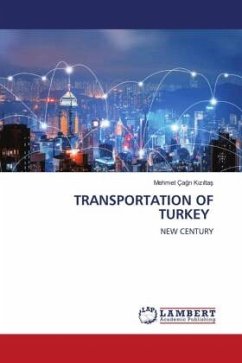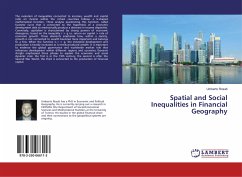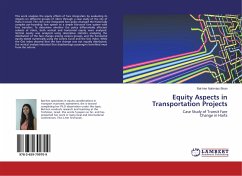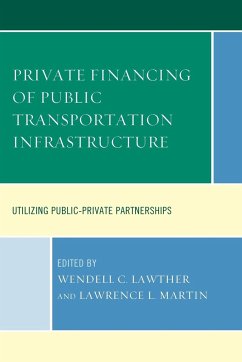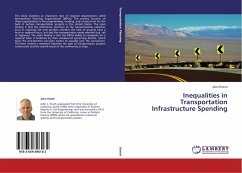
Inequalities in Transportation Infrastructure Spending
Versandkostenfrei!
Versandfertig in 6-10 Tagen
47,99 €
inkl. MwSt.

PAYBACK Punkte
24 °P sammeln!
This book examines an important type of regional organizations called Metropolitan Planning Organizations (MPOs). The primary function of these organizations is the programming, funding, and construction for the bulk of surface transportation projects in the United States. The main finding is that the preference structure of the representatives (whether local or regional) not only predicts whether the bulk of projects have a local or regional focus, but also the transportation mode selected (e.g. rail or highway). The main finding is that the MPOs ability to cooperate on a regional basis is hi...
This book examines an important type of regional organizations called Metropolitan Planning Organizations (MPOs). The primary function of these organizations is the programming, funding, and construction for the bulk of surface transportation projects in the United States. The main finding is that the preference structure of the representatives (whether local or regional) not only predicts whether the bulk of projects have a local or regional focus, but also the transportation mode selected (e.g. rail or highway). The main finding is that the MPOs ability to cooperate on a regional basis is hindered by their unbalanced governing boards, which favor the one-territory one-vote notion of equality over the one-person. This then creates a mismatch between the type of transportation projects constructed and the overall needs of the community at large.



